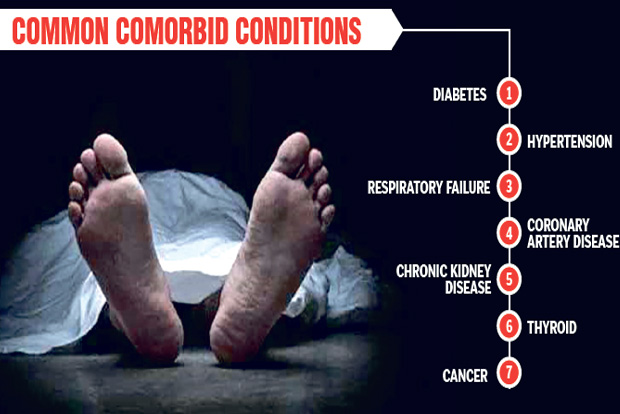Begin typing your search...
Comorbidities account for over 70 per cent deaths in State
Diabetes, hypertension, respiratory conditions and coronary artery diseases are the main comorbid conditions that resulted in the death of patients infected by coronavirus, revealed the death audit conducted by the State Health department. The analysis of the data also shows that most of the deaths happened within the first four days of their hospitalisation.

Chennai
In the last one week, Tamil Nadu recorded 25 deaths, including 22 that happened in the hospitals in Chennai. Of them, the cause of death or comorbidities in three cases remain under investigation. The audit of the remaining 22 showed that diabetes mellitus, hypertension, respiratory failure or acute respiratory distress syndrome, coronary artery disease, chronic kidney disease, hyperthyroidism or hypothyroidism and cancer were the most common comorbidities.
About 48 per cent had diabetes and 36 per cent had hypertension. At least seven had respiratory issues, while four had coronary artery diseases.
According to doctors at Rajiv Gandhi Government General Hospital, 60 per cent of the patients brought to the hospital had diabetes, while 40 per cent of them had hypertension.
Health department officials said these comorbid conditions acted as escalating factor for complications due to COVID-19 that led to deaths. A senior official said that the patients with already existing co-morbidities were difficult to treat, especially in case of late admissions. “Comorbidities raise the risk of complications such as respiratory issues and lower the immunity, and are difficult to manage,” said the official.
Senior diabetologist Dr V Mohan pointed out that in the case of a large number of patients, COVID was a triggering factor. But there are underlying factors that are responsible for death. However, he added, it was not right to say that a patient died due to diabetes, hypertension or other co-morbid conditions. Considering the large number of people in the State with diabetes, the probability of a deceased COVID having the condition was high, he noted.
“It is a false assumption that they are dying due to COVID-19 because they have diabetes and hypertension. The co-morbid conditions are treatable but cause complications that lead to deaths in a COVID-19 positive patient,” Dr Mohan said.
Echoing this, oncologists said clinical management of COVID-19 positive patients who have cancer is difficult but it is not the sole reason for deaths.
“In the case of cancer patients, there is an estimated two-fold increase in risk compared to the general population. Early published reports from China on the outcomes of cancer patients infected with coronavirus indicated a 3.5 times higher risk of needing mechanical ventilation or ICU admission or death compared with patients without cancer,” said Dr Krishnakumar Rathnam, senior consultant and head of the medical oncology department, Meenakshi Mission Hospital and Research Centre.
Coronavirus is likely to affect the cardiac functioning and can lead to cardiac arrest and myocardial infarction. “A COVID-19 patient who has cardiac artery disease is more likely to develop complications and succumb to the infection than a patient who does not have any cardiac issues. The virus can lead to cardiac arrest after developing complications,” said Dr Suresh Rao, senior cardiologist at Fortis Malar Hospital.
Another important aspect revealed by the death audit was the speed with which the deaths happened. At least 8 of the 22 persons whose deaths were analysed died on the same day of their hospitalisation. Two deaths happened just after a day after they were hospitalised, four patients died after two days, two died after three days and three died within four days of hospitalisation.
The study also showed that the highest number of deaths happened in the 41-50 and 61-70 age groups. There were seven deaths in those age groups, while six deceased patients were in the 51-60 age group. Four were in the age group of 70 and above, while two were in the age group of 30-35 years.
Visit news.dtnext.in to explore our interactive epaper!
Download the DT Next app for more exciting features!
Click here for iOS
Click here for Android
Next Story



